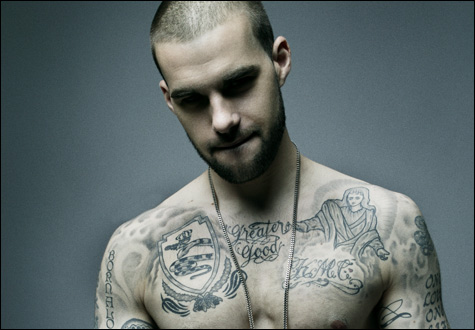
MASS APPEAL J the S is a sucker for big hooks, strings, and synthetics, and his topics cover everything from thugs to love. |
A few weeks ago, Boston MC Benny Blanco brought his homeboy J the S a flyer for a sketchy wrestling match in Long Island the next day. On the bill was 55-year-old pugilist legend Jake “The Snake” Roberts, who still fights, and on whom Mickey Rourke’s tragic protagonist in The Wrestler was largely modeled. J the S — who until recently was known to hip-hop fans as Jake the Snake — knew what had to be done. The next morning he rolled east on the Long Island Expressway.
What he found was the sort of scene he’d expected but that was frightening nonetheless: Hong Kong–buffet regulars big enough to bend folding chairs; delirious degenerates spitting warm beer at referees; Roberts and other wounded vets signing autographs and slinging tapes of their old matches. Rapper Snake got wrestler Snake’s handshake and autograph, hopped back in his whip, and returned to Brooklyn in virtual shock. More than ever before, he was motivated to do whatever it takes to avoid signing headshots at Applebee’s for middle-aged rap nerds 30 years from now.
As cheap metaphors go, it’s good that J the S (who comes to the Western Front tonight) is just now stepping into larger arenas. Had the twentysomething MC caught waves when he was a cocky Boston teen rocking at the Chopping Block, the world would have met a kid with more swagger than skill, one who had yet to understand the inequities that fueled his adolescent vigor. Snake was saying, “Fuck the man,” but more because cops harassed him on the Orange Line than because he understood cyclical oppression.
Despite being wet behind the hoodie, young Snake worked his grind like “a pimp with one ho.” Growing up in Jamaica Plain (he was born in the West Indies), he made his presence known at every show from Dorchester to Cambridge — if not as a performer, then as a relentless salesman unloading backpacks full of mixtapes. Before moving to New York in 2008, he cut four street albums and two proper full-lengths, every one of which registered on CMJ, Rap Attack, and other college charts.
Two years ago, soon after relocating to Gotham, Snake told me: “It’s always been strange, because I’m not one of those underground rap lifers who you typically hear on college radio.” Now that he’s grown up and earning commercial burn with such cuts as “The Last Party” with Jadakiss, his current sentiment is familiar: “It feels good to get love from the big stations — that’s why we’re making such a push. But that doesn’t mean I’m in any way a commercial rapper — these days, as corny as it sounds, I’m just trying to be an artist.”
Snake is indeed tough to categorize. On the surface, he could be a full-blown MTV MC, with rings, chains, and an epidermis crowded with aggressive murals. Beat-wise, he’s a sucker for big hooks, strings, and synthetics — all of which complement his Nas-like whisper the way horns do Hova’s tenor. As for topics, he covers everything from thugs to love.